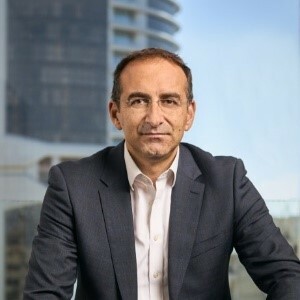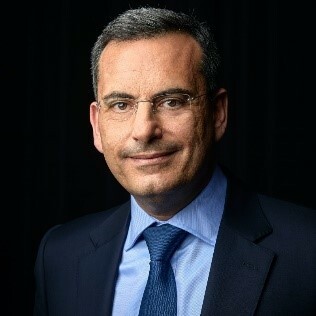Cyprus is positioning itself as a growing tech hub within the EU yet with a breadth of sectors that embraces ever more regulated international financial services, its mainstay of tourism, while also attracting expats around the world to work or retire.
The south Mediterranean island, with its great beaches for swimming and terrain fit for skiing in winter, gets around 300 days of sunshine a year and even has a soon-to-be launched state of the art observatory in the Troodos mountains which will collect data for research with NASA (more of which later).
On the financial front, the Council of Europe's Moneyval expert committee recently issued a follow-up report on Cyprus' improved compliance with Financial Action Task Force (FATF) standards on anti-money laundering (AML) regulations, saying that the jurisdiction has made some improvements regarding the supervision of non-profit organisations and virtual asset services providers and in giving law enforcement more powers to investigate.
While the Cyprus Securities and Exchange Commission (CySEC), alongside many other regulators around the world reacted to the unfolding drama of the collapse of FTX, making an announcement on 11 November that the authorisation of the Cyprus Investment Firm FTX EU was suspended over "suspicions of alleged violations", just before the cryptocurrency exchange sought bankruptcy protection in the US.
FTX EU had then been given a month to rectify what CySEC suspected were violations of conditions to safeguard client assets and on the suitability of management, and according to a 13 December report by Reuters it plans to extend the suspension of the licence of FTX EU.
"CySEC is taking all the necessary actions to safeguard the interests of investors of FTX EU and is working closely with the administrator in the U.S. under chapter 11", the regulator told Reuters.
Its former CEO Sam Bankman-Fried was charged by the US Securities and Exchange Commission on 13 December of defrauding investors, following his arrest in the Bahamas on 12 December.
Why Cyprus?
Amid this backdrop and the volatility of the global markets, International Investment found on a visit to the island a range of successful businesses across different sectors contributing to its economy.
According to Invest Cyprus, the national investment promotion authority of Cyprus aimed at attracting and facilitating foreign direct investment into the country, it is one of the fastest growing investment funds jurisdictions seeing a 307% surge in total assets under management from 2016 to 2022 to €10.6bn and a 14% annual increase in licenced companies.
As to why choose Cyprus?, the promotion authority cites a positive economic outlook (more than 6% GDP growth this year), attractive tax regime, excellent regulatory structure, low cost of doing business and high quality of life among its attributes.
George Campanellas CEO of Invest Cyprus since 2018 introduced a 3-pillar strategy with a focus on the development of Cyprus into a destination for international technology companies, the development of the regulated collective investment and asset management sector and the attraction of investment into big-ticket greenfield projects.

During his twenty years of professional experience in Cyprus and abroad he was actively involved with the attraction of foreign direct investment in sectors of strategic importance for Cyprus, including the ICT, renewable energy, oil & gas, hospitality, healthcare and education, as well as with the development of large-scale infrastructure projects, such as the subsea interconnectors, technopark, marinas and the integrated casino resort.
The Chairman of Invest Cyprus Evgenios Evgeniou, who is also member of the Council of the University of Cyprus, and member of the National Board for Research and Innovation, commenced his career in 1990 in PwC London.
He became a partner in PwC Cyprus in 2001 and chairman and CEO from 2012 to 2021. From July 2014 to December 2021, he was member of the Leadership Team of PwC Europe, Middle East, Africa (EMEA) representing fifteen European territories.

He provided services to organisations in the Financial Services and Energy industries. He participated in the drafting of the study on the long-term economic strategy for Cyprus "Vision 2035". Upon the conclusion of his second five-year term as chairman and CEO, and given the limitation of two terms, he left from PwC.
From software to biotech
One of bigger employers on the island is Amdocs, a software & services provider to communications & media companies, providing innovative solutions, intelligent operations & delivery, which was established on the island 25 years ago in September 1997.
Amdoc's US parent company, which is listed on Nasdaq, chose Cyprus for a host of reasons including close proximity to Israel, a good standard of living, safe environment for expats, no racism and a favourable corporation tax rate.
Yiannis Tinis, head of Amdocs Cyprus told International Investment that there were 35 different nationalities working for them in the Limassol office including 16% from India, both Russians and Ukrainians, and 33% are women.
Over the years, it has hired more than 500 graduates from Cypriot universities.
Some of Amdoc's big name clients include Vodaphone and BT with plans to add a financial services division though not based in the Cyprus operation.
Turning to the burgeoning biotech space of Cyprus's economy, NIPD Genetics is a European biotechnology company that designs, develops and provides advanced genetics tests.
In 2018, Medicover, the European healthcare group, signed a strategic partnership with NIPD Genetics, investing in the company's research and development capabilities for new tests.
The acquisition of Nicosia-based NIPD Genetics was completed in January 2022 placing Medicover in a new growth chapter and supporting the vision of becoming a market leader in medic testing.
Medicover is a leading international healthcare and diagnostics services provider headquartered in Sweden and listed in Nasdaq, operating in key markets of Germany, Ukraine, Romania and Poland.
Pepa Tanousis, chief marketing officer of NIPD Genetics told International Investment that it now has 150 employees from around 10 in 2010 when the company was first set up.
She said that during the Covid outbreak, the company was "agile enough to respond" and organised thousands of tests a day over the period.
She also highlighted the importance of genetic testing in Cyprus, a small country where one in seven of the population are thalassaemia carriers.
In May this year the Cyprus Mail reported that lawmakers were appealing to the public to give blood for thalassaemia sufferers needing regular blood transfusions.
The matter was discussed at the House health committee, reviewing the National Strategy for Thalassaermia and Other Haemoglobin Disorders, launched in February this year on the island.
Miltos Miltiadous, head of the Cyprus Anti-Anaemia Association, called thalassaemia "the national disease of Cyprus" with 14 to 15 per cent of Cypriots being carriers.
That compares to 7% of the global population who are carriers of a severe haemoglobinopathy, or haemoglobin disorder.
Thalassaemia is an inherited genetic condition affecting the haemoglobin component of blood. It is prevalent in Mediterranean, African, and Asian countries.
Digital degrees
Over in the world of academia, Cyprus's University of Nicosia (UNIC) has carved out a specialist range of tech courses in a bid to create new opportunities for its graduates.
The university established in 1980 and its main campus is located in Nicosia, the capital city of Cyprus. It also runs study centres in Athens, Bucharest and New York.
The University comprises the School of Business, School of Education, School of Humanities and Social Sciences, School of Law, Medical School, and the School of Sciences and Engineering.
It offers more than 100 conventional on-campus and online/distance learning programs of study at the Bachelor, Master, and Doctorate level.
However, in 2014, UNIC became the first university in the world to offer a Master of Science in Blockchain & Digital Currency and the first educational institution to accept Bitcoin for tuition payment.
As of the graduating class of Spring 2017, UNIC publishes all diplomas of its graduating students (Bachelor, Master, doctoral degrees) on the Bitcoin blockchain, offering instant online verification of degree authenticity.
Recently, the Binance Charity, the philanthropic arm of Binance, the world's leading cryptocurrency and blockchain infrastructure provider, and The Institute for the Future (IFF) of the University of Nicosia (UNIC), announced their partnership.
The partnership will see Binance Charity provide five full scholarships for prospective students from Cyprus and Greece to study the world's leading graduate programme in the field, MSc in Blockchain and Digital Currency, offered by UNIC.
Antonis Polemitis, CEO of Nicosia University told International Investment that since offering the crypto currency courses around 100,000 students have completed them to date.
With FTX creating havoc in the crypto world, ‘Sam was stealing the money", he is very forthright in arguing that digital currencies, the metaverse and the tech space more generally will prosper and enhance everyone's experience in decades ahead.
A young digital fintech business making its mark in Cyrpus is Ecommbx, which provides payment services to reputable SMEs reliant on fintech payment and account management solutions.
Ecommbx provides its services to customers that operate in a wide range of industries and include tourism and leisure companies, retail and online shops, companies for wholesale imports and exports, shipping companies as well as fintech companies.
Michael Charalambides, CEO/MD, who has run the business for 3.5 years, told International Investment that "Cyprus was perfect for piloting early to penetrate the biggest gap in the market", namely corporate entities rather than the retail banking sector. The aim is to grow the business further with a target of mid-2023 to get a licence from the Central Bank of Cyprus.
Star gazing
Turning now to the uplands of Cyprus, International Investment was one of the first official visitors to the beautiful site of the soon to launch Troodos Observatory, an educational and research facility working in collaboration with other European and International Institutions as well as collecting data for research to share with NASA.

Lead architect Elena Tsolakis, whose father grew up in a neighbouring village and returned after running a successful architect practice in Australia, said NASA has found that from India to the Mediterranean due to the turmoil in the region, it cannot keep track of the celestial phenomena so Cyprus is ideal to set up an observatory that will be interconnected with the Observatory of Crete and then with other European observatories as part of an observatory network.
As the first purpose-built observatory in Cyprus, it will attract astronomers, observers, scholars, researchers and astronomy enthusiasts from around the world. The ambition of the observatory is also to stimulate public curiosity and interest in astronomy, space and science as well as educating people of all ages.
The building will have 2 telescopes, an Astronomical Observatory Telescope and Solar Observatory Telescope for daytime use as well as be accessible to the public during the evenings for people to bring their telescopes onto the telescope platform for stargazing and for other events.
The aim was to create a landmark building perched on the peak of a mountain. The building's form is unique as is its relationship with the site. It is a foreign object within a very natural organic setting.
The idea is that it should inspire and excite anyone who sees it from afar or from up close. The design is referencing sci-fi films.
The building will be a part of the Global Unesco Geopark of the Troodos Mountain range that stretches across most of the western side of Cyprus.
The remote site is located 1200m above sea level on a mountain top, has temperatures reaching 40 degrees centigrade in summer and minus zero with snow in winter.
It is set to be a significant contribution to the region, attracting and inspiring visitors both local and international.
Research and positive content
International Investment also met with Dr Nikolas Mastroyiannopoulos, Cyprus government's chief scientist whose research work has focused on developing Gene Therapeutic approaches for Muscular Dystrophies and genetic heart disorders.
He has doctorate from the University of Bristol, UK. in Biomedical research, Molecular and Cellular Biology and a degree in Biomedical Sciences from the UWE University, UK.
He has been working in the Department of Molecular Genetics, Function and Therapy at the Cyprus Institute of Neurology and Genetics from 2006 and in 2012, he was appointed Lecturer and later Assistant Professor at the Cyprus School of Molecular Medicine (CSMM) and has supervised numerous, MSc, Ph.D. candidates and postdoctoral fellows.
In complete contrast, International Investment also met with TheSoul Publishing in Limossal, an award-winning digital studio that produces entertaining, positive and original content for a global audience. Known for channels, such as 5-Minute Crafts®, the No. 1 DIY digital brand in the world, Bright Side and 123 Go!, TheSoul Publishing reaches more than 1.5 billion subscribers across the world's most popular platforms including YouTube, Facebook, Instagram, Snap, Pinterest, and TikTok.
Its content garners more than 20 billion social media views every month. Ahead of all studios and media companies, including Disney and Warner Bros. Discovery, TheSoul generated more views on YouTube and Facebook in the world in both 2020 and 2021, according to Tubular Labs.
It was also recently recognized by Tubular Labs for its highly-popular content, topping the charts with the most unique global viewers (644 million, tied with The Walt Disney Company).
Overall, Cyprus has attracted a diverse range of businesses under an improved regulatory framework with hubs of expertise in the tech and biotech space on a growing trajectory which bodes well for its economic future.










